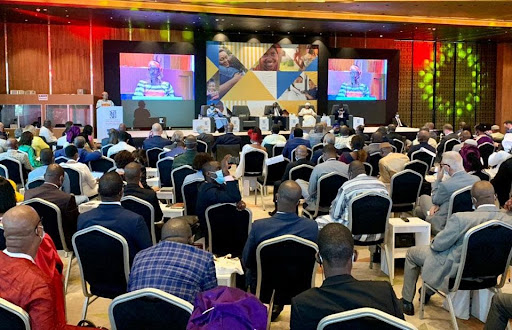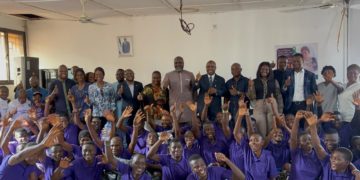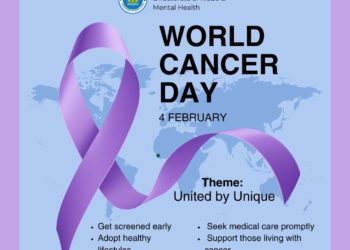
A high-level summit focusing on response to the HIV pandemic in the West and Central Africa region began in the Senegalese capital, Dakar on Sunday with calls for urgent action to prevent deaths by the viral disease.
Delegates from governments and civil society, as well as experts, warn that low investment and lack of collaboration in the fight against HIV/AIDS have seen a resurgence of the pandemic, especially in the West and Central Africa region, where more lives are at stake if timely action is not taken.
The summit which brings together dozens of delegates, including government ministers from over 15 countries and activists from about 25 countries in the region, is hosted by Senegal’s President Macky Sall.
Organizers say the ongoing COVID-19 crisis has not only obstructed services but it has also exacerbated the inequalities that drive the AIDS epidemic.
In a statement, UNAIDS Executive Director, Winnie Byanyima, warns that failure to act urgently will not only cause the loss of more lives, but that it could render efforts to contain pandemic more complicated.
According to UN data, in 2020 there were an estimated 4.7 million people living with HIV across the West and Central Africa region and 150, 000 AIDS-related deaths. In the same year, 200 000 people became newly infected with HIV, while 1.2 million people were still waiting to initiate life-saving HIV medication due to shortage in resources.
“If we don’t act now, not only will many more lives be lost, but containing the AIDS pandemic will be more difficult and expensive in the coming years,” says Ms Byanyima.
She warns that the epidemic in the sub region is an ongoing emergency and that early gains made against the disease in the region have not been translated into the sustained progress that has been made in other parts of sub-Saharan Africa.
According to Ms Byanyima, three ‘bold’ actions were required to achieve this: embrace and enable communities to be at the centre of planning and delivery, increase investment and address the inequalities that drive the epidemic.
The three-day event is organized by the UNAIDS and the Civil Society Institute of HIV and Health in West and Central Africa. According to its agenda, delegates will explore how to get regional and national responses on track to end the AIDS epidemic as a public health threat by 2030, in line with the United Nations Sustainable Development Goals.
The forum will also discuss how to build an HIV response that leaves no one behind in the context of COVID-19 and emerging pandemics. It will also discuss how the latest HIV research can inform policies and porgrammes.
In light of the Covid-19 pandemic, the first day of the summit was dedicated to panel discussions which focused on collaboration between governments, civil society and communities with the goal of strengthening health systems and services to end the AIDS by 2030.
The best way to prepare for the pandemics of the future is to respond to current pandemics killing people, notes Nigeria’s Dr Aliyu Gambo, Director of its National Agency for Control of AIDS.
Ghanaian activist and former government minister, Nana Oye Bampoe, stresses on the need for coordination between government and civil society and for the integration of humanitarian programmes with diseases like TB, Malaria and HIV.
“44.7 million in our region need humanitarian assistance. But unfortunately, some of the humanitarian programmes do not integrate HIV issues,” she says.
Prior to Covid-19, the global HIV response was said to be slower than expected, despite some gains in the response efforts. The newest pandemic worsened the situation. It not only disrupted healthcare delivery services by depriving other sectors of much needed funds, lockdowns and restrictions also forced people living with HIV to stay at home without their lifesaving medications.
This summit was designed to identify how to close the gaps in the region’s HIV response and strengthen pandemic preparedness.
Abdu Diouf Sarr, Minister of Health of the host country, said the forum offered an opportunity to “reinforce and renew our efforts in the HIV response and future epidemics” after the setbacks occasioned by Covid-19.
“We have the solutions to protect our most vulnerable populations,” he says.
The common situation in the region is that while the infection rate is relatively low, compared to elsewhere in the world, it is highly concentrated and affecting key populations such as men who have sex with men and sex workers. These groups of people face discrimination, which experts and campaigners say has the effect of further driving up infections.
West and Central Africa is said to be home to 12 percent of people living with AIDS globally, and the region accounts for 22 percent of all HIV deaths worldwide.
The UN data show that 65 percent of HIV infections in the region happen among key populations. And 1 in 3 new infections among children happen in the region. Yet only 35% of children living with HIV in the region are on treatment.”
The UN agency says every week more than 1000 adolescent girls and young women aged 15–24 years become infected with HIV in the region.





















